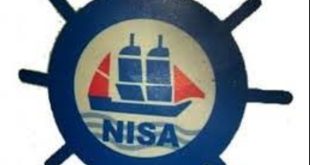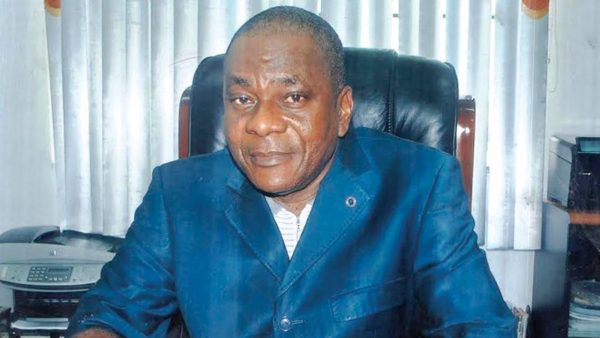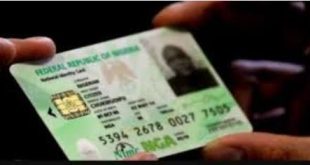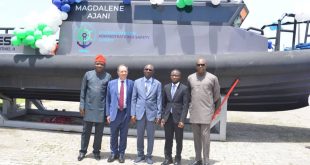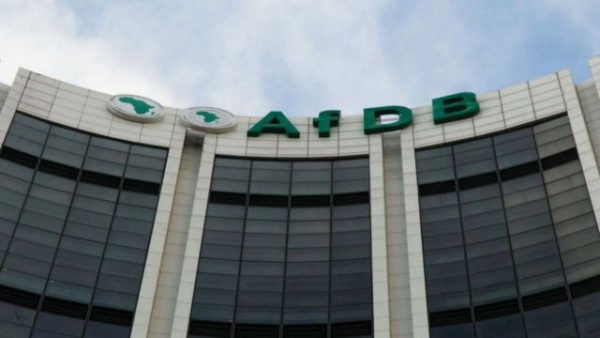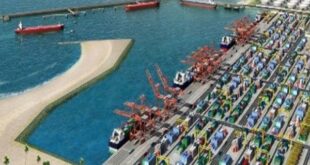
*NNPC Invites Indigenous shipowners over crude carriage
*SOAN Promotes local content with Locally bred seafarers
Fresh facts have emerged on why the Federal Government has resolved to sign a crude oil supply contract with Niger Republic, even as the Nigerian National Petroleum Corporation(NNPC) has formally invited, for the first time, indigenous shipowners to discuss the modalities of crude oil affreightment.
According to the NNPC, 1,000 kilometre crude oil pipeline will be constructed from Niger Republic to Kaduna Refinary and Petrochemical Company (KRPC). With criticisms already trailing the move, the Group Managing Director of NNPC, Dr. Maikanti Baru had explained that, “Due to challenges with the aged refinery and crude oil pipelines that had been breached severally, the operations of the refinery epileptic. This, we are determined to resolve through various intervention methods, including evaluation of alternative crude oil supply from Niger Republic through building of pipelines of 1,000 kilometres from Agadam to Kaduna. That effort is being championed by Mr. President”.

But speaking at the 2016 Gala Evening and Dinner of the Shipowners Association of Nigeria (SOAN), which took place in Lagos, last week, the Group Managing Director of NNPC said, “the only reason we are considering the pipeline project from Niger is that Kaduna refinery is the most complicated in Nigeria. It is the most technologically advanced and it has the capacity to handle different grades of crude oil but what we do today is sub-optimal. So, the supply arrangement with Niger, if it comes to fruition would help us increase the utilization of the Kaduna refinery.
Represented by the Group Executive Director, Downstream, Mr. Henry Obih, Baru added: “We are looking at the Niger option because the pipeline we have from Warri going into Kaduna, at the very best pumps about 40,000 barrels of crude oil everyday while Kaduna refinery needs 110,000 barrels per day. So, from an infrastructure stand point we are short on capacity and the Niger arrangement is an opportunity to increase input to Kaduna refinery and also its output.”
Speaking on the topic:” Benefits of Establishing A National Shipping Fleet for Crude Oil Affreightment” at the SOAN dinner as the Guest Speaker, Baru asserted that the establishment of a national fleet would save Nigeria some foreign exchange paid to foreign ship owners.
He said that a total of $6.165,800,104 was paid to foreign ship owners in 2015 for crude oil affreightment, regretting that some of these monies could have been saved if the nation had a national fleet for crude oil carriage.
According to him, Nigeria loses $3.5billion as a result of non-patronage of local chandlers by shipping lines in the upstream sector, adding that “these and others in dry cargoes lead to a significant loss of business annually.”
He listed the benefits of the national shipping fleet to include, reduction of reliance on foreign ships for crude oil transportation, increase in activities of the maritime sector, creation of employment opportunities, among others.
“The shipping industry in Greece which is the largest in the world is mainly driven by private sector. The ship owners association should strive to grow the business of its members such that Nigerian flagged vessels are visible globally. The association should identify what government needs to put in place to make the shipping business of its members extremely successful,” Baru noted.
Meanwhile, the president of SOAN, Mr. Greg Ogbeifun has confirmed a formal invitation of the association from the NNPC to discuss modalities of engaging the local ship owners in the affreightment of crude oil.
In his address at the occasion, SOAN president said that “SOAN network has within one year of her existence become an important enabler of maritime trade in Nigeria which has increased investments in the industry by shipowners owning more vessels, increased competitiveness, improved employment creation and enhanced the capacity of seafarers.”
The audience was treated to the launching of SOAN’s 100 Cadet Training Berths Scheme, which was done in collaboration with the Nigerian Maritime Administration and Safety Agency (NIMASA). The scheme is a baby of SOAN aimed at providing sea –time requirements for the cadet training in order to support the increasing needs of the industry.
 MMS PLUS NG – Maritime, Aviation, Business, Oil and Gas News Online Newspaper with coverage in Maritime, Oil and Gas, Aviation, Power and Energy as well as Financial News
MMS PLUS NG – Maritime, Aviation, Business, Oil and Gas News Online Newspaper with coverage in Maritime, Oil and Gas, Aviation, Power and Energy as well as Financial News



